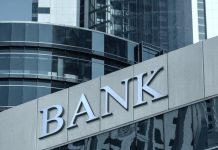In its effort to combat the skyrocketing inflation that is wreaking havoc on the country’s economy, the Central Bank of Nigeria (CBN) has been cautioned by the Lagos Chamber of Commerce and Industry (LCCI) to look beyond rate increases.
The Chamber made this claim in a statement titled “LCCI on CBN’s Interest Rate Increase,” in which it urged the central bank to look into problems like a lack of foreign currency, security concerns, rising gasoline prices, and a lack of adequate infrastructure to support manufacturing.
The chamber claims that a significant capital flight might harm the economy and have a negative impact on the value of the naira.
It asked the CBN to maintain its focused intervention programmes for energy, infrastructure, healthcare, exports, agriculture, manufacturing/industries, MSMEs (micro, tiny, medium and small companies), and other actual sectors of the economy.
The statement read in part, “The Monetary Policy Committee of the Central Bank of Nigeria, at its third meeting this year, raised the MPR from 13 per cent to 14 per cent in response to the surging inflation rate that hedged up to 18.60 per cent as of June 2022. We note the gloomy outlook of the global economy which has a direct link to our domestic economy with the pass-through effects of imports.
“The persistent war in Ukraine and other disruptive factors may present as risks into the end of the year. A tightening of rates may have been a good decision by the MPC as that was necessary to tame the rising inflation rates in the past months.
“We however reiterate our earlier position that rate hikes or monetary policy instruments alone will not yield the desired result of lowering inflation rate without a corresponding boost to the supply-side factors like FOREX scarcity, insecurity, rising costs of fuels, and weak infrastructural support for production.”
The statement further said that beyond the goal of stabilising prices, employment, economic growth, and balance of payment equilibrium were equally important.
“While it is expedient to curb inflation rates, we equally risk a contracted economy that may go towards a recession. This calls for the need to embark on targeted financing for critical sectors of the economy to help boost the supply-side,” the statement added.













